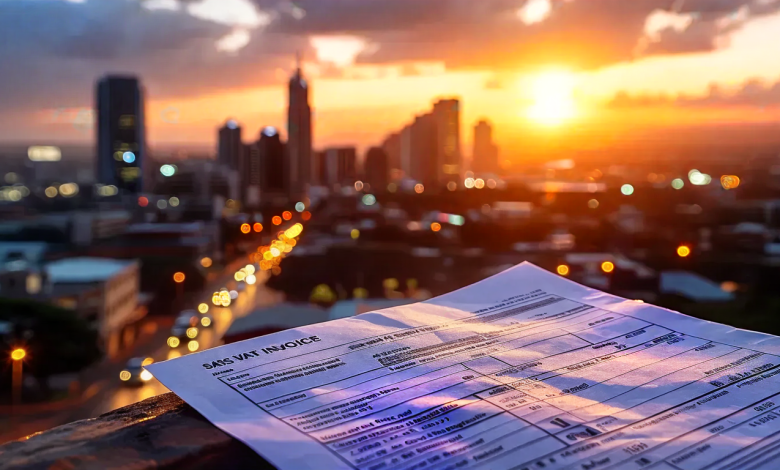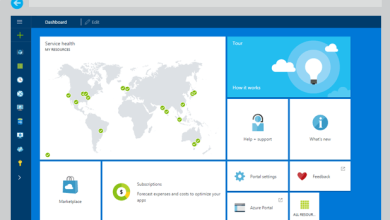SARS VAT Invoice Requirements In South Africa

You’ve just completed a big project, and it’s time to invoice your client. But wait—did you include all the necessary details to meet the SARS VAT invoice requirements? Issuing a valid VAT invoice isn’t just a box to tick; it’s a crucial step for businesses registered for Value-Added Tax (VAT) in South Africa. Not only does it ensure compliance with the South African Revenue Service (SARS), but it also allows your customers to claim VAT refunds where eligible.
Yet, the rules surrounding what constitutes a valid VAT invoice can be tricky, with specific details required to avoid penalties or rejections. In this guide, we’ll break down the SARS VAT invoice requirements, provide practical examples, and answer common questions to help you stay compliant and avoid costly mistakes.
What is a VAT Invoice?
A VAT invoice is a document issued by a VAT-registered supplier to a customer whenever goods or services are supplied. This document is essential for both the supplier and the customer because it serves as proof of the transaction and allows the customer to claim back the VAT paid, if eligible.
Key Components of a Valid VAT Invoice
To comply with SARS regulations, a VAT invoice must include specific information. Below is a comprehensive list of the required elements:
| Component | Description |
|---|---|
| Supplier’s Details | The full name, physical and postal address, and VAT registration number of the supplier. |
| Customer’s Details | The name, address, and VAT registration number of the recipient (if they are VAT registered). |
| Unique Invoice Number | A sequential number that uniquely identifies the invoice. |
| Date of Issue | The date on which the invoice is issued. |
| Description of Goods/Services | A clear description of the goods or services provided. |
| Quantity and Unit Price | The quantity of goods or extent of services provided and the unit price, excluding VAT. |
| Total Amount Excluding VAT | The total amount payable excluding VAT. |
| VAT Rate and Amount | The VAT rate applied (typically 15% in South Africa) and the total VAT charged. |
| Total Amount Including VAT | The total amount payable including VAT. |
| Terms of Payment | Payment terms, including the due date and any discount conditions. |
Types of VAT Invoices
SARS recognizes two main types of VAT invoices:
- Full VAT Invoice: Required when the transaction value (including VAT) exceeds R5,000. This invoice must contain all the elements listed above.
- Abridged VAT Invoice: Permissible for transactions under R5,000. This type of invoice requires fewer details, such as the supplier’s name, address, VAT number, date, a brief description of the goods or services, and the total amount including VAT.
Practical Example of a VAT Invoice
Here’s an example of a full VAT invoice for a business-to-business transaction:
ABC Trading Ltd
VAT Reg. No: 123456789
123 Business St, Johannesburg, 2000
Postal Address: P.O. Box 456, Johannesburg, 2001
Invoice No: 001234
Date: 15 August 2024
To: XYZ Solutions Pty Ltd
VAT Reg. No: 987654321
456 Corporate Ave, Pretoria, 0181
| Description | Quantity | Unit Price (Excl. VAT) | Total (Excl. VAT) |
|---|---|---|---|
| Web Design Services | 1 | R10,000 | R10,000 |
Total Excluding VAT: R10,000
VAT @ 15%: R1,500
Total Including VAT: R11,500
Payment Terms: Payment due within 30 days of the invoice date.
Common Mistakes to Avoid
- Incorrect or Missing Information:
One of the most frequent mistakes businesses make is failing to include all the required elements on their VAT invoices. Each invoice must contain specific details, such as your VAT registration number, a unique invoice number, and a clear description of the goods or services provided. Omitting even one of these elements can render the invoice invalid for VAT purposes. This not only opens your business up to penalties from SARS but also means your customers may not be able to claim VAT refunds. To avoid this, double-check each invoice against the SARS VAT invoice requirements checklist before issuing it. - Using an Incorrect VAT Rate:
Applying the wrong VAT rate is another common error that can have serious consequences. In South Africa, the standard VAT rate is 15%, but certain goods and services may be zero-rated (0%) or exempt from VAT altogether. For instance, basic foodstuffs like bread and milk are zero-rated, while financial services are typically exempt. Misapplying the VAT rate can lead to underpayment or overpayment of tax, which could result in hefty fines, audits, or disputes with SARS. It’s essential to correctly identify the VAT status of your goods or services and apply the appropriate rate on your invoices. - Not Issuing Invoices Timely:
Timing is crucial when it comes to issuing VAT invoices. SARS mandates that invoices must be issued within 21 days of the supply of goods or services. Failing to do so not only puts you in non-compliance with tax regulations but also disrupts your cash flow and customer relationships. Delays in invoicing can lead to late payments, strained business relationships, and potential fines. To ensure compliance and maintain healthy business operations, make it a priority to issue invoices promptly, preferably as soon as the goods or services are delivered.
By being aware of these common mistakes and taking proactive steps to avoid them, you can ensure your business stays compliant with SARS VAT invoice requirements and avoid unnecessary financial penalties.
Frequently Asked Questions
1. Can I issue a VAT invoice in a foreign currency?
Yes, but the VAT amount must be shown in South African Rand (ZAR). The exchange rate used should be the one prevailing at the time of the transaction.
2. What should I do if I make an error on a VAT invoice?
You should issue a credit note to correct any errors on a VAT invoice. The credit note must reference the original invoice and correct the mistake.
3. Are there penalties for non-compliance with SARS VAT invoice requirements?
Yes, failing to comply with VAT invoice requirements can result in penalties, including fines and interest on unpaid VAT. Additionally, your customers may be unable to claim their VAT refunds, which could damage business relationships.
Staying Compliant: Best Practices
To ensure your business remains compliant with SARS VAT invoice requirements, consider the following best practices:
- Use accounting software: Modern accounting software can automate the invoice generation process, reducing the risk of errors and ensuring all required information is included.
- Regular Training: Keep your accounting team informed about the latest VAT regulations and ensure they understand the importance of accurate invoicing.
- Internal Audits: Conduct regular internal audits of your VAT invoices to ensure compliance and identify any issues before they become problematic.
Final Take on SARS VAT Invoice Requirements
Understanding and adhering to SARS VAT invoice requirements is essential for any VAT-registered business in South Africa. By following the guidelines provided, you can ensure your invoices are compliant, reducing the risk of penalties and improving your business’s financial management.




